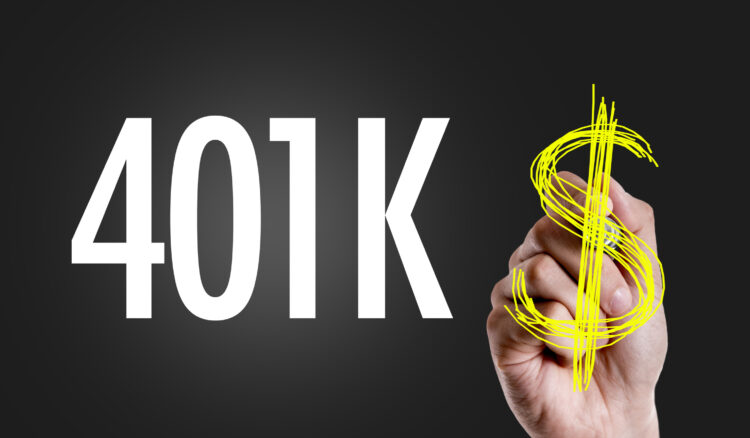
Hitting $1 million in your 401(k) is massive, seriously, pat yourself on the back! Now that you have hit this milestone, it is like you have climbed a huge peak, and you are looking out at the next range to conquer. So, what should you do next? Here are 15 smart money moves to make.
Look Over Your Investments

Now is a great time to reassess your investments. You might want to start moving towards more stable investments. Think of it as making sure your retirement money is not all riding on a wild horse. It is better to have a steady, reliable one that will not throw you off at the last minute.
Think About a Roth IRA

Ever considered switching some of that 401(k) to a Roth IRA? It could be a smart move because you pay taxes on the money now, at today’s rate, and then when you pull it out during retirement, it is tax-free. It is kind of like paying for all your gas upfront and then driving toll-free.
Boost Your Emergency Fund

Even though your 401(k) is looking good, do not forget about having some liquid cash for emergencies. Stuff happens: cars break down, roofs need repairs, and you do not want to be caught without a quick-access stash of cash that does not require you to tap into your retirement funds.
Reevaluate Your Retirement Timeline

With a million bucks in the bank, maybe you can think about retiring a bit earlier, or maybe it opens up options you hadn’t thought about before, like part-time retirement or consulting. It is a good moment to sit down and sketch out what you really want your retirement to look like.
Chat with a Financial Advisor

If you are not already working with one, now might be the time to start. A financial advisor can really help you make sense of where you are financially and where you can go from here. Think of them as a guide who helps you map out the best route on your financial journey.
Max Out Your Contributions

If you are not already doing so, now is the time to max out your 401(k) contributions, especially if your employer matches any part of what you put in. Maxing out contributions can significantly impact how much your 401(k) grows moving forward. It is like supercharging your car’s engine right before a long stretch of highway.
Diversify Your Investments

While stocks and bonds are the backbone of most retirement accounts, consider diversifying into other areas like real estate or even certain types of funds that focus on commodities or other markets. Diversification can reduce risk and increase potential returns, and in case one market dips, you are not left scrambling.
Keep an Eye on Fees

Investment fees can eat into your retirement savings more than you realize. Take a look at what you are paying for fund management and administration. Sometimes, switching to funds with lower fees can save you a lot of money in the long run. Once you switch them, everything runs just as smoothly but at a lower cost.
Plan for Healthcare Costs

Whatever retirement money you have kept aside, healthcare costs are going to inevitably eat into it! Consider looking into health savings accounts (HSAs) or other long-term health investment options. These can be a smart way to pay for medical expenses with tax-free money when you retire or a dedicated savings account for car maintenance, ready whenever you need it, with no stress involved.
Update Your Estate Plan

Now that your 401(k) has hit a significant value make sure your estate plan reflects how you want these assets handled in the future. This might mean updating your will, setting up trusts, or revising beneficiaries. Ensuring that your money goes exactly where you want it to when you are not around to make those decisions anymore.
Stay Informed About Tax Changes

Tax laws are constantly evolving, and these adjustments can have significant impacts on your retirement planning. Staying updated on tax regulations is essential to optimize your financial strategy and ensure you are not caught off guard by new laws that could affect your 401(k) or overall retirement strategy.
Consider Delaying Social Security

If your finances permit, delaying Social Security benefits can be advantageous. By postponing benefits until age 70, you can maximize your monthly payouts, providing a more robust financial buffer in later retirement years. This strategy can significantly enhance your income stream when you might need it most.
Keep Working Part-Time

Maintaining part-time work can supplement your income and keep you actively engaged. Whether through consulting, leveraging a hobby into a business, or seasonal employment, continued work can help maintain financial flexibility and personal well-being.
Monitor Your Withdrawal Rate

It is crucial to manage how much you withdraw from your retirement accounts each year. The 4% rule is a common guideline, suggesting that you draw 4% of your portfolio annually to sustain your funds through retirement. However, adjusting this rate based on current market conditions and personal spending needs can help extend the longevity of your resources.
Stay Flexible

Adaptability in retirement planning is key. As you progress through retirement, your personal needs and the economic environment will evolve. Being prepared to adjust your financial plans in response to changes ensures that you can maintain a comfortable lifestyle, regardless of unexpected challenges.

Comments
Loading…